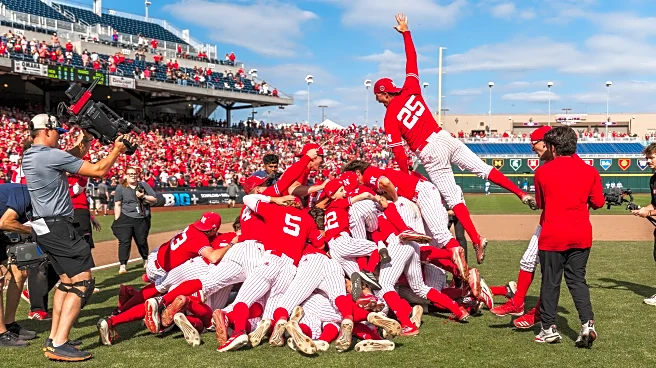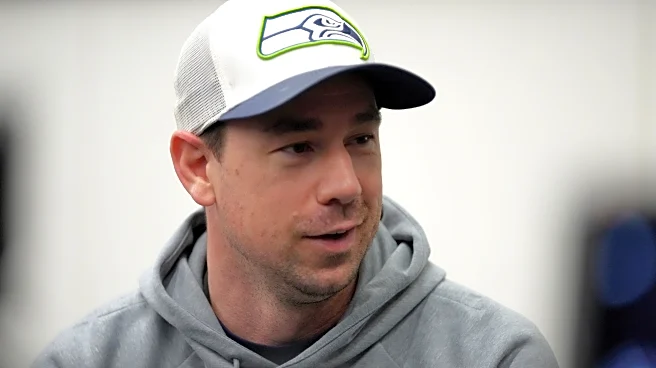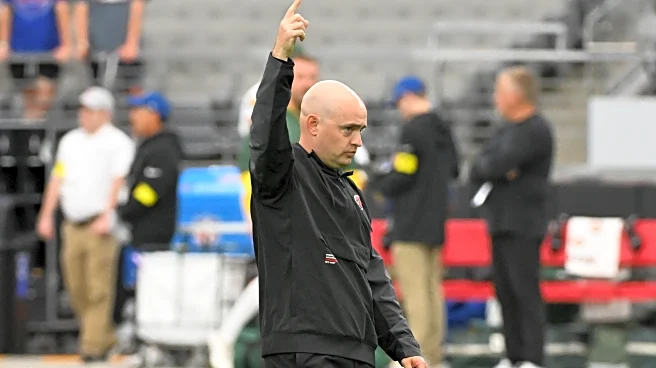Rapid Read • 8 min read
President Trump has announced a federal takeover of Washington, DC's police department, deploying 800 National Guard troops and initiating the removal of homeless individuals from the city. This decision follows an incident involving a 19-year-old former staffer of the Department of Government Efficiency who was assaulted during an attempted carjacking. Despite this high-profile event, violent crime rates in Washington, DC are reportedly at their lowest in over 30 years. The President's actions have sparked debate, as historical data from the FBI indicates a significant drop in violent and property crimes since 1993. The move raises questions about the perception of crime versus actual statistics, and whether such measures are necessary or effective.
AD
The deployment of National Guard troops and federal intervention in local policing is a significant action that could set a precedent for how crime is managed in urban areas. It highlights the tension between perceived crime rates and actual statistics, potentially influencing public opinion and policy decisions. The move may impact local governance and civil liberties, as federal oversight could alter the dynamics of local law enforcement. Stakeholders such as city officials, residents, and civil rights groups may have differing views on the necessity and implications of such federal actions. The broader significance lies in the potential shift in crime management strategies and the balance between federal and local authority.
The immediate next steps involve monitoring the impact of the National Guard deployment on crime rates and public safety in Washington, DC. Reactions from local government officials, residents, and advocacy groups are expected, with possible legal challenges or protests against federal intervention. The situation may prompt discussions on alternative crime reduction strategies and the role of federal government in local policing. Future policy decisions could be influenced by the outcomes of this intervention, potentially affecting crime management approaches in other cities facing similar issues.
This development raises ethical and legal questions about the balance of power between federal and local authorities. The removal of homeless individuals and increased military presence may have long-term social implications, affecting community trust and civil rights. The situation could lead to broader discussions on the root causes of crime and homelessness, emphasizing the need for comprehensive social policies rather than solely punitive measures. The cultural impact of such federal actions may also influence public perception of safety and governance.
AD
More Stories You Might Enjoy










